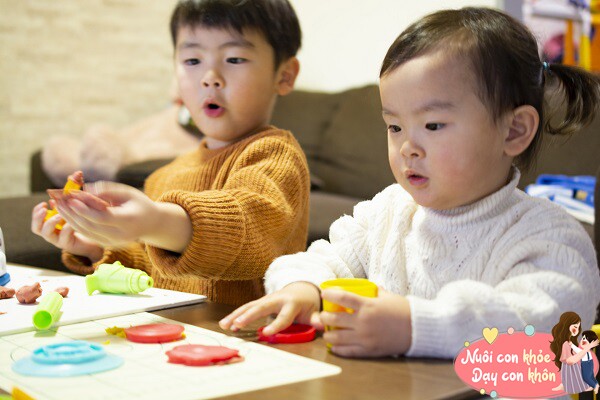Early childhood education is the first stepping stone in a child’s journey to adulthood, and it plays a crucial role in stimulating their vast potential and fostering good learning habits.
From infancy, parents can begin to guide their children on a scientific and nurturing journey of exploration. This approach aims to promote balanced development in both IQ and EQ.

Warm Accompaniment of Love: The Warmest Awakening
In the early stages of education, it is crucial to provide children with unconditional love and support.
Through hugs, kisses, gentle words, and eye contact, children can feel a sense of security and trust from their parents, providing a solid foundation for their exploration of the world and acquisition of new knowledge. This lays the groundwork for their physical, intellectual, and social development.

In the initial stages of education, it is essential to shower children with love.
When parents spend quality time with their children, it strengthens their bond and builds a close relationship. Fun moments, bedtime stories, and playful interactions make children feel loved, safe, and comfortable.
This contributes to establishing a solid foundation of emotions, trust, and connection. These foundations become invaluable assets as they grow up and transition to the next phase of their development.

Sensory Stimulation: Boosting Brain Development
A child’s brain develops rapidly during the early years of life. Using various sensory stimuli, such as bright colors, soft music, and toys made from different materials, can effectively enhance brain development.
By engaging multiple senses, including touch, hearing, and sight, children can gain a deeper understanding of the world and improve their cognitive abilities.
Research indicates that diverse and enriching sensory experiences in early childhood have a significant impact on brain development, particularly in areas associated with learning, creativity, and problem-solving.

Bright colors, soft music, and toys made from various materials can effectively enhance brain development.
When exposed to these stimuli, a child’s brain rapidly forms and strengthens neural connections, providing a solid foundation for future learning and growth.
Moreover, offering diverse sensory experiences helps children develop social and emotional skills. Through interaction with their environment, they learn to express emotions, communicate, and cooperate with others. This is essential for their ability to integrate and succeed in later life.

Language Enlightenment: Laying the Foundation for Communication
Language is a tool for thinking and a bridge for communication between individuals. From the moment a child is born, the process of language awakening can begin.
Parents should engage in frequent conversations with their children, sharing details about their daily lives and using simple words and sentences to communicate.
This constant language stimulation helps develop language comprehension and expression skills, providing a strong foundation for future learning and social interaction. Research shows that children exposed to a rich vocabulary and diverse sentences from an early age tend to exhibit faster language development than those with limited exposure.

Parents should engage in frequent conversations with their children, sharing details about their daily lives.
Additionally, conversing and sharing with children promotes brain development, enhances neural connections, and improves cognitive abilities, logical thinking, and memory. When children feel heard and responded to, they develop a sense of being valued and loved, which builds confidence and trust in communication.
Language is also a vital tool for expressing emotions, resolving conflicts, and integrating into the community. Therefore, early language development is a core foundation for future success in learning, social interaction, and community involvement.

Physical Development: Encouraging Body Coordination
Physical development is crucial for overall growth. Appropriate exercises, such as tummy time, lifting the head, rolling over, crawling, and standing, can promote muscle, bone, and nerve development while improving body coordination and balance.
Physical activity also boosts metabolism and strengthens the immune system, contributing to overall health. It not only enhances physical well-being but also positively impacts the central nervous system, improving thinking abilities, memory, and concentration.
Research suggests that children who are encouraged to engage in physical activities from a young age tend to exhibit higher brain development and cognitive abilities than those who are less active.
Therefore, combining physical exercises with sensory stimulation activities, such as listening to music, observing, and exploring the surroundings, is essential for optimal development.

Exercises like tummy time and lifting the head, rolling over, crawling, and standing promote muscle and bone development…

Emotions and Social Interaction: Nurturing Positive Personalities
Early childhood education is not just about imparting knowledge and skills but also about cultivating emotional and social abilities.
Through interactions and communication with parents and peers, children learn to share, cooperate, empathize, and respect others.
These emotional and social skills will accompany them throughout their lives, forming the basis for future success and happiness.
Early education is a journey of love and growth. During this process, parents should accompany their children with love, patience, and wisdom, aiming to stimulate their infinite potential.




































